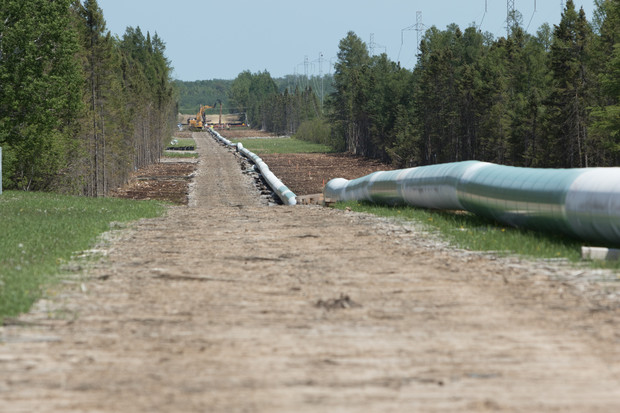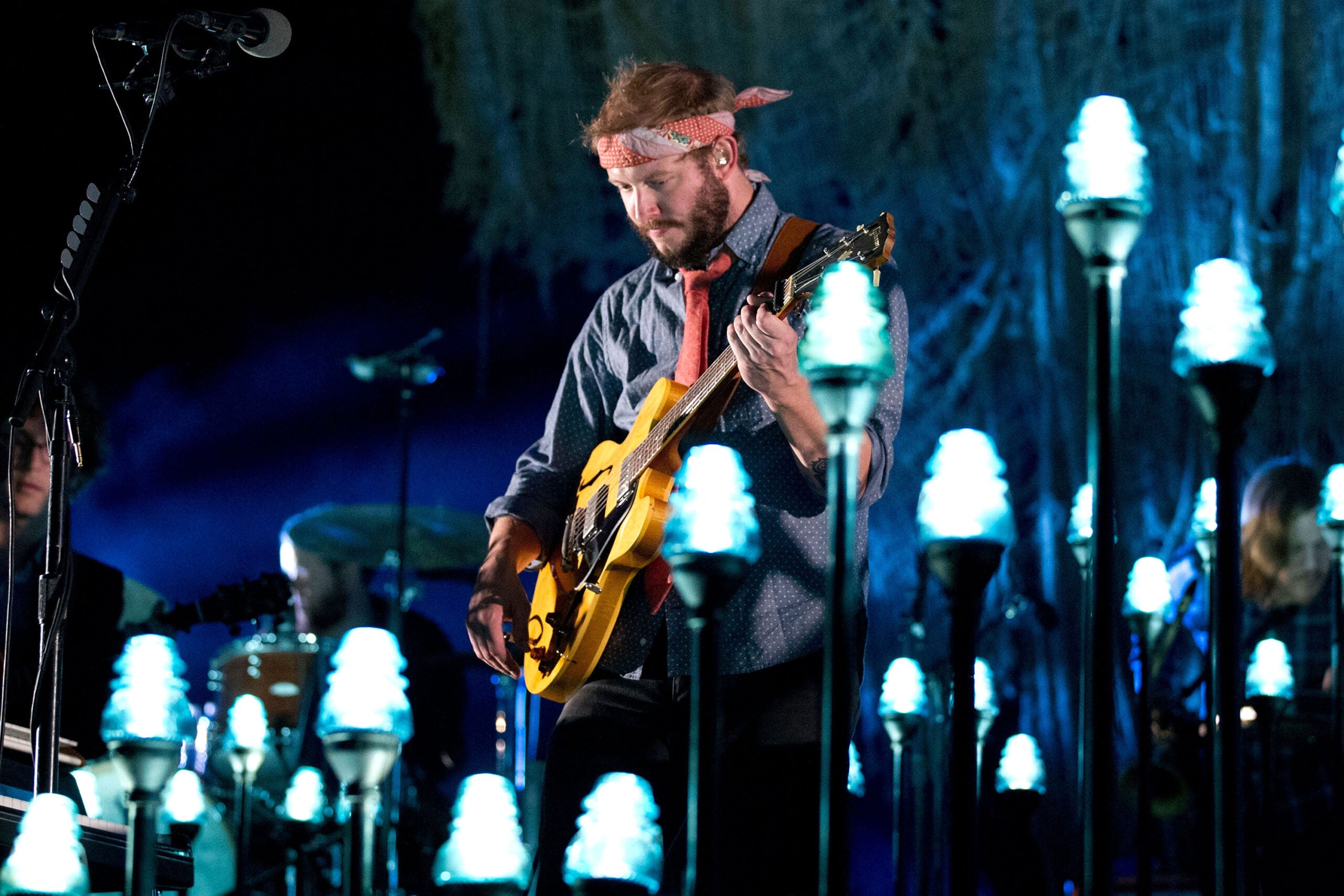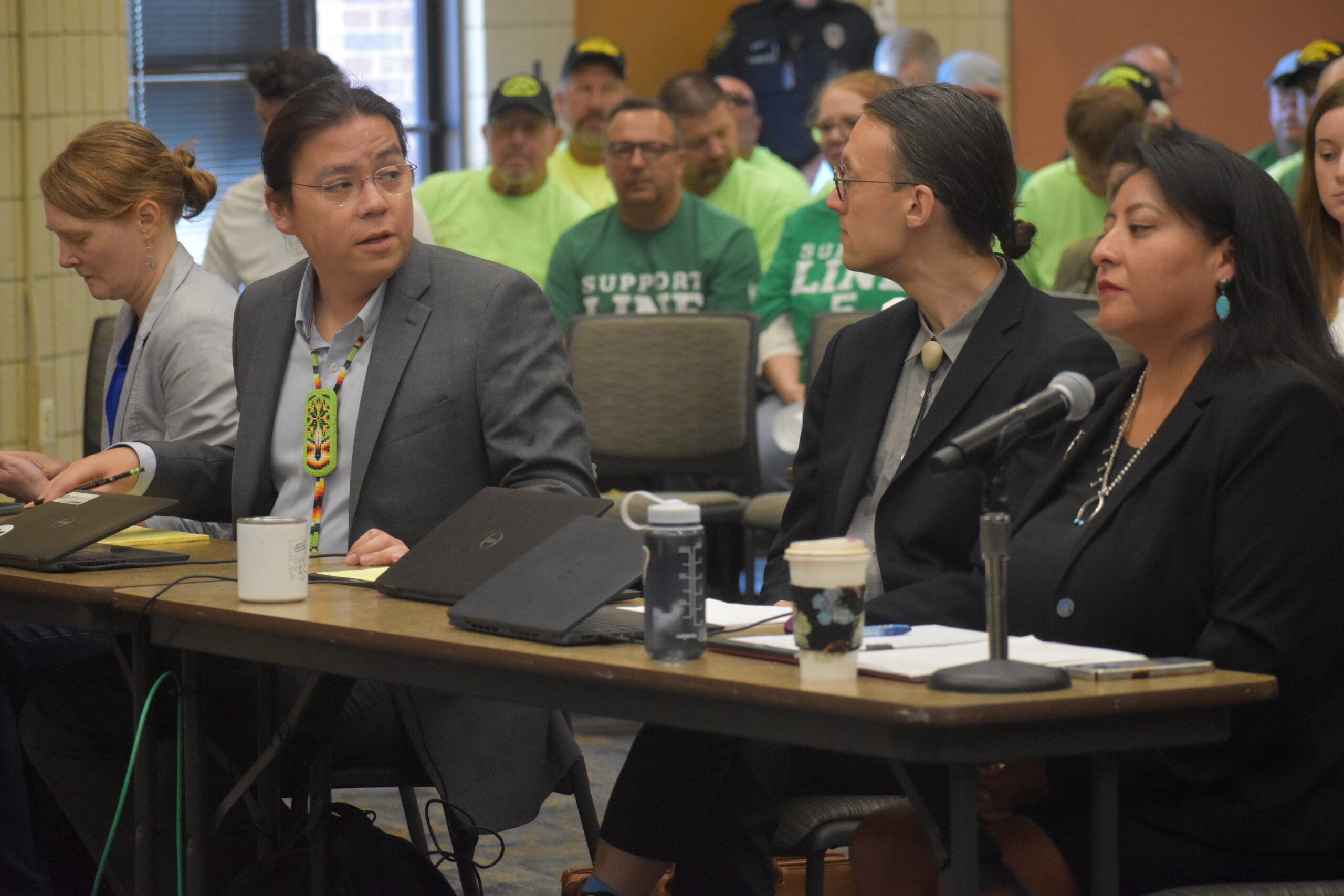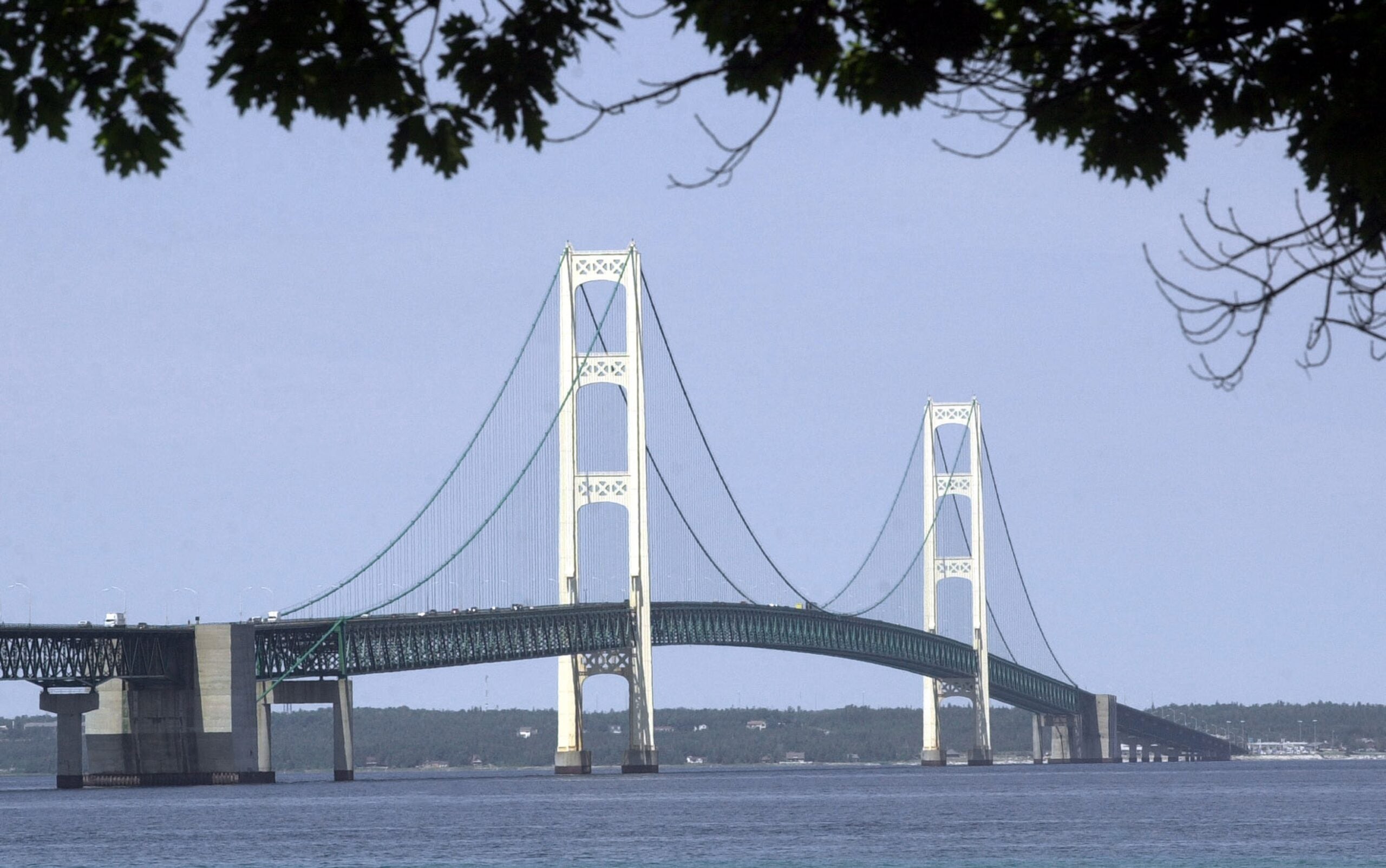Grammy award-winning Eau Claire native Justin Vernon and his band Bon Iver will headline a concert in Duluth Wednesday that seeks to raise money to stop construction of Enbridge’s Line 3 oil pipeline in Minnesota.
The event is a fundraising concert for the Indigenous environmental nonprofit organization Honor the Earth, which has been leading protests of the Canadian energy firm’s pipeline replacement.
Pipeline opponents and health professionals in Wisconsin and Minnesota are calling on President Joe Biden and his administration to stop Line 3, arguing the project conflicts with the administration’s pledges to curb carbon emissions that drive climate change.
News with a little more humanity
WPR’s “Wisconsin Today” newsletter keeps you connected to the state you love without feeling overwhelmed. No paywall. No agenda. No corporate filter.
“We need to come together to save our environment, to save our Earth from total annihilation, and that’s on its way,” Vernon said during a livestream on Monday. “That’s what I care about, and I don’t really care about anything else.”
Bon Iver is joining a wide lineup of musicians who will perform as part of the “Water is Life: Stop Line 3” festival at Duluth’s Bayfront Festival Park on Wednesday from noon to 10 p.m. The concert’s line-up includes performances from Lissie, Low’s Alan Sparhawk, David Huckfelt, Mumu Fresh, Larry Long, and Native performers Annie Humphrey, Quiltman, Dorene Day Waubanewquay and Corey Medina.
Vernon pointed to a recent report from a United Nations panel on climate change in which more than 200 scientists detailed how changes from past and future emissions will result in irreversible changes to the planet for centuries. The latest report builds on previous studies that humans are causing rapid changes in warming that will lead to more frequent and intense heat waves, rains, drought and other extreme events.
“I think everyone’s feeling the heat, quite literally,” said Vernon. “This is just one major fight.”

Famous musicians and Hollywood celebrities like Jane Fonda and Mark Ruffalo are among protesters who have called on the Biden administration to shut down the pipeline. Line 3 can carry up to 760,000 barrels per day of Canadian tar sands and crude oil from Alberta to Enbridge’s terminal in Superior. But the 1960s-era pipeline is operating at roughly half its capacity due to safety and integrity concerns with the pipeline. The company’s replacement project in the United States now costs roughly $4 billion. And legal challenges in Minnesota from tribes and environmental groups have delayed construction.
Opponents say the pipeline threatens wild rice beds along the route and is likely to worsen climate change, including Winona LaDuke, founder of Honor the Earth.
“Someone should do something because you can’t pretend you’re a climate president and approve a pipeline worth 50 new coal-fired power plants,” said LaDuke.
Enbridge argues the pipeline’s replacement has no impact on production or use of fossil fuels, adding that restoring capacity would prevent transport of oil by more carbon intense transportation methods like rail or truck.
Enbridge spokeswoman Juli Kellner said the company has set a goal to reach net-zero emissions by 2050 and plans to lower emissions by investing in natural gas, hydrogen and other technologies. The company has spent $8 billion on renewable energy to date.
“Enbridge has demonstrated its commitment to addressing climate change with real action to lead the transition to a lower-carbon future,” said Kellner in an email.
She added that the Minnesota Public Utilities Commission addressed climate change when it issued a construction permit for the Line 3 replacement project.
“They concluded that emissions from the ultimate consumption of oil transported on Line 3 do not result from the replaced pipeline, but instead from the continued demand for crude oil to produce refined products used by consumers,” said Kellner.
The pipeline is part of a larger production and refining system that could give off up to 200 million tons of greenhouse gas emissions each year at maximum capacity, according to the project’s environmental impact statement. Minnesota Public Radio reported that the social costs of carbon that could result from Line 3 may reach $287 billion over the next 30 years.
The pipeline’s replacement was a condition of a $177 million settlement reached with the Obama administration to address safety concerns in the wake of a spill from another Enbridge pipeline into the Kalamazoo River in 2010. Enbridge’s Line 6B released at least 843,000 gallons into Talmadge Creek and the Kalamazoo River in Michigan, costing the company $1.2 billion to clean up.
In June, the Biden administration defended a decision by the U.S. Army Corps of Engineers to issue permits for the pipeline’s replacement as part of a legal brief opposing a lawsuit brought by Honor the Earth, Minnesota tribes and environmental groups. Those permits could still be withdrawn, but Enbridge said the project is already 90 percent complete in Minnesota.
The Wisconsin segment of the project was finished in late 2017 and went into service the following year.
According to the Duluth News Tribune, a group of mayors in northern Minnesota sent a letter to Duluth Mayor Emily Larson on Aug. 5 that asked the city to cancel the fundraising concert. The mayors expressed concerns over protests along the route that resulted in confrontations with law enforcement. Larson rejected the mayors’ pleas to withhold permits for the event, citing their First Amendment rights.
LaDuke said at least 700 people have been arrested during protests along the pipeline’s route this summer. She’s glad the concert is moving forward, citing a history of musicians driving social causes.
“I was raised in this community. My mother’s an artist, so I want to be with the team that has the vision and the courage and the beauty to change the world,” said LaDuke.
Vernon agreed and hoped people would not only educate themselves about the project, but be “moved and inspired to do something.”
Enbridge said it recognizes the rights of individuals and groups to express views legally and peacefully. The company touts the roughly 4,400 union jobs the project has created, as well as their $285 million investment in tribal communities. Enbridge argues the pipeline’s replacement will help protect Minnesota waters and wild rice while providing safe, affordable energy as the nation pursues a just energy transition.
Wisconsin Public Radio, © Copyright 2025, Board of Regents of the University of Wisconsin System and Wisconsin Educational Communications Board.





